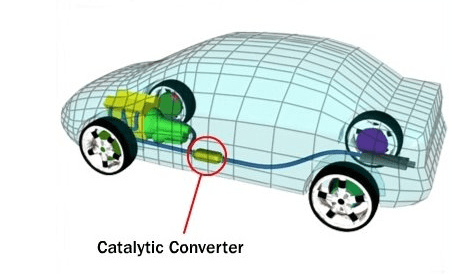Investigators with the Columbia Police Department’s (CPD) Property Crimes Unit (PCU) are offering a reminder about preventing catalytic converter thefts, a crime that is impacting law enforcement across the country. So far this year, the PCU has taken 24 reports of catalytic converter thefts.
Thieves target catalytic converters because they contain valuable precious metals like platinum, palladium or rhodium. The thieves may sell the the metals which, according to experts can sell for several hundred dollars.
You’ll know that a catalytic converter was stolen from your vehicle right after you start the engine.
Catalytic Converter Theft Detection
- Loud ‘roaring’ sound when engine is started
- ‘Sputtering’ sound when you change speed
- Vehicle doesn’t drive smoothly
Thieves tend to look for cars that are abandoned on roadways, fleet vehicles or at car dealerships for easy access to multiple vehicles at one time. The thefts aren’t limited to those locations — That’s why these theft prevention tips are important:
Under South Carolina law, if someone is arrested and depending on the circumstances of the crime/allegation, the suspect (s) could be charged with:
16-11-523 Unlawfully Obtaining nonferrous metals.
16-17-680 Purchase, sale, and transportation of nonferrous metals
16-21-90 Damaging or tampering with vehicle
Safety Tips | Catalytic Converter Theft Prevention
- If possible, park in an enclosed garage at home or in a well-lit area
- Avoid mounting a car including on a curb – this will make it harder for thieves to gain access to underneath a vehicle.
- Speak to your mechanic about bolting the catalytic converter, cage clamp or sensor that can will activate an alarm.
- Consider engraving your vehicle identification number (VIN) on the catalytic converter — to alert a scrap dealer that it was stolen
To report a stolen catalytic converter, visit https://columbiapd.net/submit-a-police-report/
You can also call non-emergency dispatch at (803) 252-2911.

